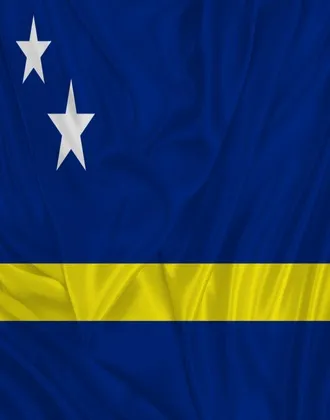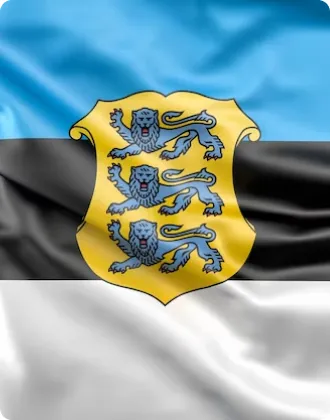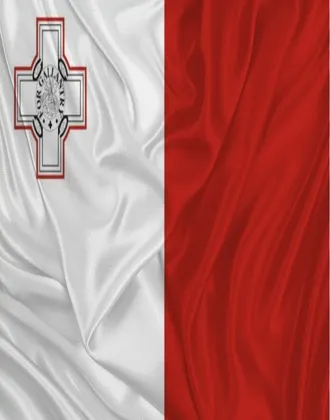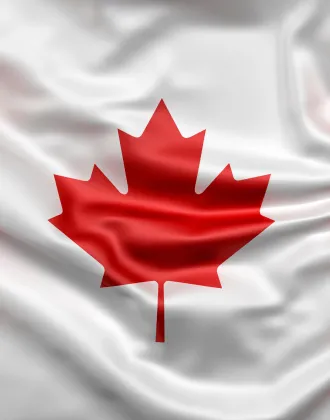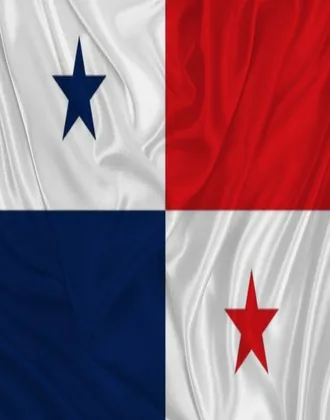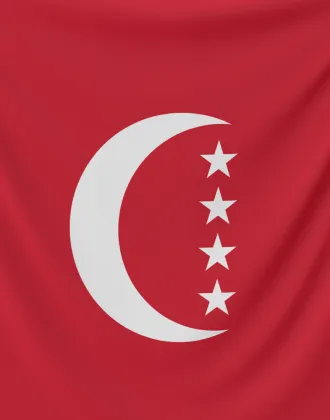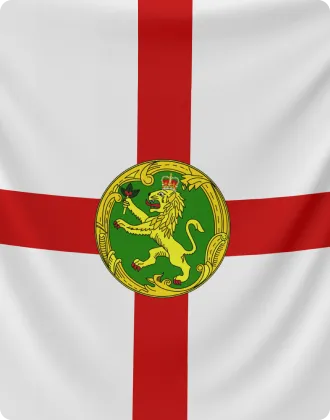
Gambling License in Brazil
For many years, gambling remained prohibited in Brazil, dating back to the 1940s. However, recent changes in legislation have changed the situation, and from January 1, 2025, the regulated online betting and gambling market began operating in the country. Gofaizen & Sherle can help you understand all aspects of entering this largest market in Latin America, which can also be one of the most lucrative in the world. We also offer a full range of services for the registration and support of gambling companies in Brazil.
Brazil is undergoing significant changes in gambling regulation and is becoming one of the most promising jurisdictions for gambling operators. Despite the lack of clear legislation in the past, online gambling has always been extremely popular in the country. For example, in 2022, Brazil accounted for more than 20% of global online gambling traffic, highlighting the scale of interest in this market.
Until recently, a lack of legal framework and licensing led many players to turn to foreign platforms or Brazilian services registered abroad. This caused significant financial losses to the local economy, with a projected lost revenue of around $1.5 billion in 2023.
Realizing the potential of the market, Brazilian authorities decided to create a regulated environment. In 2024, detailed regulations were published, defining the rules for operators and the process of obtaining licenses. These measures are aimed at returning billions to the country’s economy and creating a sustainable control system.
The popularity of gambling in Brazil is particularly noticeable among sports fans, with more than 86% admitting to using online betting services. This makes the country one of the most attractive for iGaming operators.
With the introduction of regulation on January 1, 2025, the market became officially available for legal activities. The new regulatory framework creates opportunities for operators wishing to enter Latin America’s largest market, providing them with transparent rules and protecting the interests of players.
Brazil attracts international operators with its huge domestic market and high interest in gambling. More than 86% of sports fans actively use online betting, and the introduction of licensing offers great prospects.
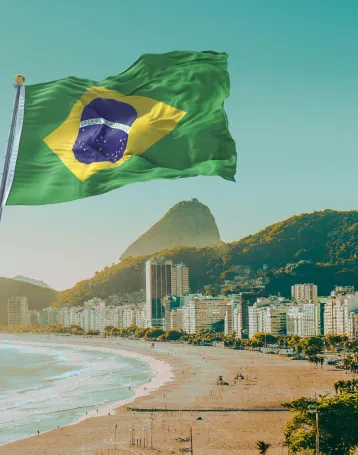
Timeline of gambling regulation in Brazil
Until the 1940s, gambling was an integral part of Brazilian culture. Gambling establishments were popular, and dice rolling and other forms of entertainment were considered the norm. However, in 1946, President Dutra imposed a total ban on gambling based on religious and moral considerations.
The 1970s marked the beginning of relaxation: state lotteries were allowed, which became an important source of revenue for the budget.
The 1980s brought another change: betting on horse racing was legalized.
1993 was a milestone with the Zico Law, which legalized commercial bingo and the use of slot machines. However, in 1998, Pele’s Law restricted the field again by banning commercial bingo, leaving only non-commercial lotteries allowed.
Online gambling and sports betting remained unregulated until recently. Despite this, the popularity of this market in Brazil has been immense.
2018 was the beginning of a new era. Congress authorized the federal government to develop a system to regulate online sports betting, but the process was delayed.
2023 – The ABRADIE Association was created to develop a safe environment for gambling and fighting fraud. In March, the government accelerated the development of new laws.
July 2024 marked the publication of detailed regulations including licensing rules, anti-money laundering, and player protection.
On January 1, 2025, a new phase begins: the regulated gambling market, including betting and lotteries, officially launches. Currently authorized are:
- sports betting (online and offline);
- state-sponsored lotteries;
- poker, which is officially considered a game of skill.
Casinos and bingo remain in the regulatory development stage, making them a promising area for operators.
Regulation of online gambling in Brazil is likely to become increasingly stringent in the coming years, with increased licensing controls and a crackdown on illegal operators. Additional requirements for responsible gambling are expected, as well as measures to protect users, such as deposit limits and self-exclusion mechanisms. In parallel, the government may expand the list of authorized games, which will attract even more international operators. Overall, the market will continue to grow rapidly and regulators will strive to create a transparent and safe gambling ecosystem that generates significant tax revenues for the country.
Licenses
Companies seeking a license must apply to the Secretariat of Prizes and Betting (SPA) under the Ministry of Finance (Ministério da Fazenda).
There are two main types of licenses:
- for sports betting;
- for online casinos.
Approved operators can apply for a five-year license that allows them to manage up to three brands per company. This requires paying a license fee of 30 million Brazilian reais (about $5.1 million) and meeting set requirements.
Сompliance
Online gambling operators in Brazil are required to comply with several rules and regulations, including:
- Anti-Money Laundering (AML) and Customer Identification (KYC) rules;
- responsible gaming rules;
- rules for the protection of player data.
Licensed operators are also required to implement responsible gambling measures, including self-exclusion mechanisms and deposit limits.
Regulatory bodies conduct inspections to ensure compliance.
Regulatory bodies
Today, the main regulatory body is the Brazilian Ministry of Finance, which drafts regulations, manages licensing, and monitors compliance. The National Telecommunications Agency (Anatel) also plays a role in blocking illegal sites.
The government is also working on the creation of a National Secretariat of Gaming and Betting (Secretaría de Apostas Esportivas), which will monitor the industry and oversee operators.
In general, the system of online gambling regulation in Brazil is in the development stage. It is expected to become more sophisticated and efficient over time.
Benefits of a Brazilian Gaming License
Access to the largest market in Latin America
Brazil is a country of over 200 million people, 67% of whom are active Internet users. A legal gaming license gives operators access to a wide audience and the opportunity to scale their business in a rapidly growing region.
High level of profitability
The Brazilian gambling market has huge potential, and high user engagement makes it one of the most promising in the world. The steady growth in interest in online gambling and sports betting allows operators to expect significant profitability.
Economic prospects and industry development
The legalization of gambling stimulates the economy, attracting large investments and creating new jobs. The development of the gambling industry in Brazil contributes to increased tax revenues, making the market even more attractive to operators.
Legal security and investment protection
Official licensing provides transparency for operators, reduces the risk of legal disputes, and protects businesses from unforeseen regulatory changes. Companies operating under license gain confidence in the long-term stability of their operations.
Access to a regulated and safe environment
Brazil’s regulated gambling market provides operators with clear business rules, reduces the likelihood of illegal competition, and increases player confidence. Responsible gambling standards and anti-fraud measures make it safe and secure to operate in the country.

Request more information about the Brazil gambling license
Requirements for obtaining a Brazil gambling license
The main requirements for licensing online gambling activities in this jurisdiction include:
- Registering a company in Brazil: To obtain a license, the applicant must register a legal entity in Brazil. The company must comply with local corporate laws and have its registered headquarters and administrative offices in the country. In addition, the corporate structure must have at least 20% of the shares owned by a Brazilian citizen.
- Financial stability and guarantee obligations: Operators are required to demonstrate financial stability by providing detailed financial statements and a two-year forecast. A minimum financial reserve of 5 million Brazilian reais (approximately US$854,350) is also required.
- License fees: To obtain a license, a registration fee of 30 million Brazilian reais (approximately US$5.1 million) must be paid. The license is issued for five years, and failure to pay the fee by the due date will result in the application being canceled.
- Technical compliance and certification: All gaming platforms must comply with integrity and security requirements. Gaming systems are certified by independent laboratories, and software must be audited to meet transparency and reliability standards.
- AML/CFT and KYC policies: Operators are required to implement strict anti-money laundering (AML) and counter-terrorist financing (CFT) measures. Customer identification (KYC) procedures and monitoring of suspicious activity are also required. Operators must keep records of all transactions and promptly provide data to regulators.
- Responsible Gaming: Licensees must implement measures to protect players, including:
- self-exclusion programs;
- setting betting limits;
- protecting vulnerable users.
- Mandatory local presence: Operators are required to maintain a physical presence in Brazil, which includes offices and local staff. 24/7 customer support in Portuguese is also required.
- Advertising regulation: Advertising materials must comply with strict requirements. Key restrictions include:
- the gambling license logo must be included in advertisements;
- it is prohibited to attract the attention of minors;
- mention of the risks of gambling must be clear and understandable;
- the protagonists of the advertisement must be over 21 years of age;
- specifying odds and taxes in Brazilian reals.
- Registration on a consumer protection platform: Operators are required to register with the official Brazilian consumer dispute resolution platform, which guarantees the protection of players’ rights and service standards. This platform allows consumers to register complaints against companies and seek resolution. It is managed by the Ministry of Justice and Public Security and aims to facilitate communication between consumers and companies to effectively resolve issues.
- Prohibiting certain individuals from participating: Licensed operators cannot accept bets from government officials, athletes, and other individuals with significant market power. These restrictions must be taken into account in the KYC system.
Brazilian regulators plan to exercise strict control over operators. Non-compliance may lead to license revocation and heavy fines.
Documents required a gambling license in Brazil
To obtain a gaming license in Brazil you will need:
Company registration documents.
The list of required documents includes:
- constituent documents confirming that the company is registered in Brazil;
- documents confirming that at least 20% of the shares are owned by the Brazilian partner;
- address and registration data of the head office and administrative bodies of the company in Brazil.
Financial documentation.
- proof of financial reserve of 5 million Brazilian reais;
- a certificate of financial discipline issued by the Central Bank of Brazil;
- a financial report with a two-year forecast;
- tax documents issued by the Special Secretariat of Federal Revenue.
Employee Qualifications.
- appointment of a financial director and a customer support manager;
- certificates of no criminal record or misdemeanor for the owners and key employees of the company;
- proof of qualifications of professionals responsible for anti-money laundering (AML) and counter-terrorist financing (CFT) compliance.
Technical certificates.
- documents confirming that the platform meets safety and reliability requirements;
- certificates of independent laboratories on technical compliance of gaming software;
- confirmation of compliance with data protection requirements and KYC protocols.
License and advertising obligations.
- documents confirming payment of the R$30 million license fee;
- registration on the official Brazilian consumer dispute resolution platform;
- advertising policy that complies with Brazilian law, including information on rates, taxes, and age restrictions.
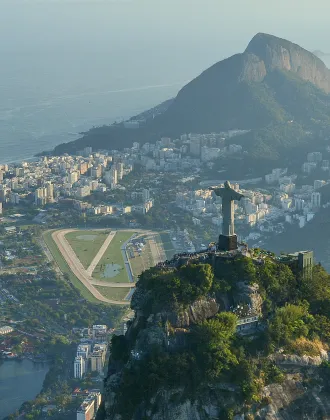
Procedure for obtain gambling license in Brazil
The process of obtaining a gaming license involves several steps:
Company Registration:
Step 1
The first step is to register a legal entity under Brazilian law. This step includes filing the incorporation documents, registering the company with the tax authorities, and obtaining a certificate of shareholder structure.
Preparing and submitting documents:
Step 2
To apply, several documents must be prepared, including:
- certificate of incorporation of the company;
- documents confirming the shareholder structure;
- financial documentation, including proof of reserve funds (at least R$5 million);
- an operational plan, including security measures and anti-money laundering policies;
- confirmation of the platform’s compliance with technical and security standards;
- certificates of criminal record of the company’s management.
The documents are submitted to the Awards and Rates Secretariat of the Brazilian Ministry of Finance.
Application review and applicant verification:
Step 3
Once the application is submitted, the review process begins, which includes:
- a background check of the company’s executives;
- analyzing the financial situation and sources of funds;
- assessment of the technical readiness of the platform;
- verification of compliance with anti-money laundering and counter-terrorist financing standards;
- compliance of advertising activities with CONAR (advertising self-regulatory organization) standards.
The review procedure may take several months. During this period, the applicant may be sent requests for additional information.
Payment of the license fee:
Step 4
Upon successful completion of the review, the applicant is notified that a license fee must be paid. Payment must be made by the due date or the application will be canceled.
Obtaining a license and further regulation:
Step 5
Upon payment of the license fee, the company is officially authorized to conduct gambling activities in Brazil. Thereafter, the company is obliged to:
- provide regular tax reports;
- comply with consumer protection regulations;
- register on Brazil’s consumer dispute resolution platform;
- maintain transparency of financial operations and comply with legal requirements.
The process of obtaining a license in Brazil is quite strict, but it ensures the legal and safe operation of gambling operators in the country.
Explore more information about the Brazil Gambling License
Gambling Lawyers in Brazil

Position
Senior Associate, Business Development Manager (FX & iGaming)Phone
+372 5477 0344
Position
Senior Associate, Head of Sales (FX and iGaming)Phone
+372 5300 1858Taxation and Financial Obligations
Licensed online gambling operators in Brazil are required to pay several taxes and fees regulated by Law No. 14.790 and subsequent regulations. The main tax rates include:
- Gross Gaming Revenue Tax (GGR) – 12% on the total amount of bets less winnings paid. This tax is directed to the state budget and distributed to various social and sports programs.
- Corporate income tax (IRPJ) – 15% of the company’s net profit. If the annual profit exceeds 240,000 Brazilian reals, an additional rate of 10% is applied.
- Social Contributions (CSLL) – 9% of taxable profits go to the social security fund.
- VAT on electronic services (ISS) – 2% to 5% depending on the municipality where the company is registered.
In addition, licensees must take into account the costs associated with registering on official government platforms and complying with regulatory requirements.
Also, licensed companies are required to keep transparent accounting records and submit them to the regulatory authorities regularly. Key requirements include:
- quarterly and annual financial reports confirming compliance with tax laws and license conditions;
- anti-money laundering (AML) reports – companies must identify customers and track suspicious
- transactions, providing information to the Central Bank of Brazil;
- audits – annual independent audits to confirm correct financial activity and compliance with security standards;
- reports to the Brazilian Ministry of Finance – revenue, tax payments, and compliance data are sent to the Secretariat of Prizes and Gambling (SPA).
Failure to comply with these requirements can result in fines, suspension of operations, or license revocation. Therefore, companies must strictly follow the regulations and submit financial reports promptly.
Penalties for non-compliance
-
Companies operating licensed online gambling activities in Brazil must strictly comply with applicable laws and regulations. In the event of regulatory violations, various penalties are available, including:
-
1.
Warnings.
Initially, when non-compliance is identified, the regulator may issue a formal warning. This allows the company to remedy the violation without incurring more severe penalties. -
2.
Financial penalties.
Depending on the severity of the violation, a company can be fined up to 2 billion Brazilian reals (about USD 342 million). The amount of the fine is determined by the nature of the violation, its consequences, and the degree of damage to consumers and the state. -
3.
Revocation of authorization.
In case of serious or systematic violations, the regulator may revoke the online gambling license, which will lead to the immediate termination of the company’s operations in Brazil. -
4.
Prohibition on obtaining a new license.
Companies that have committed serious violations can be barred from re-licensing for up to 10 years. This prevents the possibility of resuming operations in the market in the short term. -
5.
Ban on participation in public tenders.
Violators may be banned from bidding for public services and concessions within the federal public administration for at least 5 years. -
6.
Disqualification from leadership positions.
Individuals responsible for violations may be disqualified from serving as a director or administrator in companies engaged in gambling activities for up to 20 years. This applies to both existing and future businesses in the gambling industry.
Conclusion
Brazil represents a promising jurisdiction for obtaining a gaming license, as the country’s gambling market is growing strongly and offers operators opportunities to generate high profits and enter one of the largest economies in the region. However, it is important to note that the legal framework for gambling activities in Brazil is still not fully defined, which can make it difficult to navigate the licensing requirements.
In such circumstances, it is essential to seek expert advice to help navigate the legal intricacies and provide legal support throughout the licensing process. Gofaizen & Sherle has extensive experience with FinTech, Crypto, and Gambling projects, making it a reliable partner for obtaining a gambling license in Brazil. She specializes in tailor-made solutions, taking into account the specificities of clients’ business models, and will help you choose the most appropriate type of license depending on the specifics of your company’s business.
Gofaizen & Sherle experts will not only prepare all the necessary documents but also provide full legal support, which will allow you to complete the licensing process and comply with the legal requirements of Brazil.
FAQ about a gaming license in Brazil
What types of games can be licensed in Brazil?
From January 1, 2025, this jurisdiction licenses online gambling, including virtual betting based on random numbers, symbols, or objects. Fantasy sports and fixed odds sports events are also licensed.
What is the minimum capital required to obtain a gambling license in Brazil?
The minimum capital required to obtain a gambling license in Brazil is 5 million Brazilian reals (about 854,350 USD).
How long does it take to obtain a gambling license in Brazil?
It takes between 8 and 12 months to obtain a gambling license in Brazil. The process involves document review, compliance checks, and platform certification, which takes time to ensure that all legal requirements are met.
Can I apply for a gambling license if I am not from Brazil?
Yes, foreign companies can apply for a gambling license in Brazil if at least 20% of the company’s share capital is owned by a Brazilian shareholder (individual or company).
Explore other Gaming Licenses
Connect with our experts
Our experts will tell you how to do it as quickly and easily as possible.
By clicking the button, I confirm that I have read the privacy policy and consent to the collection and processing of my personal data in accordance with the GDPR rules.
to our news & insights
